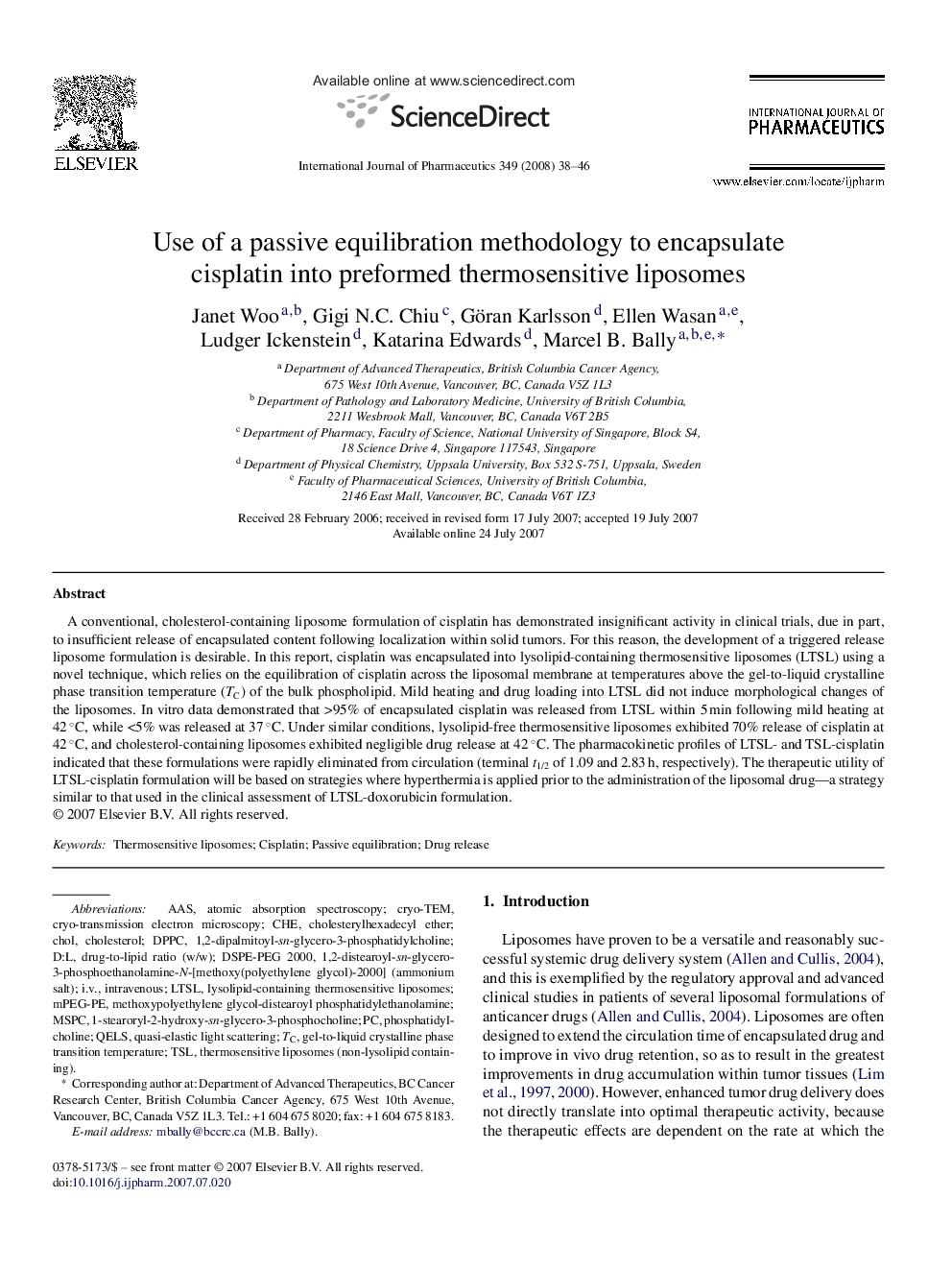| Article ID | Journal | Published Year | Pages | File Type |
|---|---|---|---|---|
| 2505798 | International Journal of Pharmaceutics | 2008 | 9 Pages |
A conventional, cholesterol-containing liposome formulation of cisplatin has demonstrated insignificant activity in clinical trials, due in part, to insufficient release of encapsulated content following localization within solid tumors. For this reason, the development of a triggered release liposome formulation is desirable. In this report, cisplatin was encapsulated into lysolipid-containing thermosensitive liposomes (LTSL) using a novel technique, which relies on the equilibration of cisplatin across the liposomal membrane at temperatures above the gel-to-liquid crystalline phase transition temperature (TC) of the bulk phospholipid. Mild heating and drug loading into LTSL did not induce morphological changes of the liposomes. In vitro data demonstrated that >95% of encapsulated cisplatin was released from LTSL within 5 min following mild heating at 42 °C, while <5% was released at 37 °C. Under similar conditions, lysolipid-free thermosensitive liposomes exhibited 70% release of cisplatin at 42 °C, and cholesterol-containing liposomes exhibited negligible drug release at 42 °C. The pharmacokinetic profiles of LTSL- and TSL-cisplatin indicated that these formulations were rapidly eliminated from circulation (terminal t1/2 of 1.09 and 2.83 h, respectively). The therapeutic utility of LTSL-cisplatin formulation will be based on strategies where hyperthermia is applied prior to the administration of the liposomal drug—a strategy similar to that used in the clinical assessment of LTSL-doxorubicin formulation.
